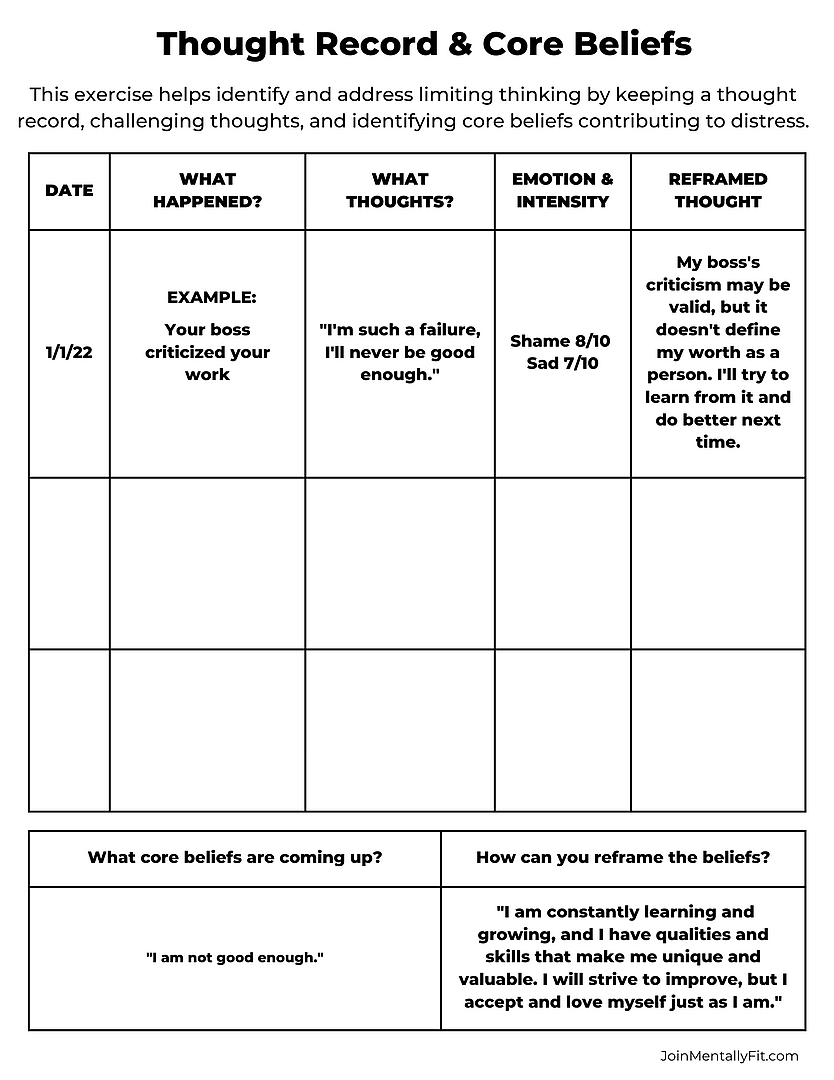Anxiety disorders are among the most common mental health issues, affecting millions of people worldwide. Cognitive Behavioral Therapy (CBT) is a widely recognized and effective treatment for anxiety, helping individuals identify and change negative thought patterns and behaviors that contribute to their anxiety.
CBT for anxiety often involves the use of worksheets to help individuals track their thoughts, emotions, and behaviors. These worksheets serve as valuable tools in the therapy process, allowing individuals to gain insight into their anxiety triggers and develop coping strategies.
Benefits of Cognitive Behavioral Therapy for Anxiety Worksheets
One of the key benefits of using worksheets in CBT for anxiety is that they help individuals become more aware of their thought patterns. By recording their thoughts and associated emotions, individuals can identify patterns of negative thinking that contribute to their anxiety. This awareness is the first step in challenging and changing these thought patterns.
CBT worksheets also provide a structured way for individuals to track their progress in therapy. By setting goals and monitoring their thoughts and behaviors, individuals can see tangible improvements over time. This sense of progress can be incredibly motivating and empowering, helping individuals feel more in control of their anxiety.
In addition, CBT worksheets often include exercises and activities that help individuals develop coping strategies for managing their anxiety. These may include relaxation techniques, cognitive restructuring exercises, and exposure therapy exercises. By practicing these strategies regularly, individuals can build resilience and reduce the impact of anxiety on their daily lives.
Furthermore, CBT worksheets can be used outside of therapy sessions as a way for individuals to continue their progress independently. By regularly completing worksheets and engaging in self-reflection, individuals can reinforce the skills and techniques learned in therapy, leading to long-lasting changes in their anxiety symptoms.
In conclusion, cognitive behavioral therapy for anxiety worksheets are valuable tools that can help individuals gain insight into their anxiety, track their progress, develop coping strategies, and maintain their progress over time. By incorporating worksheets into therapy sessions and using them as a resource for self-guided practice, individuals can work towards overcoming their anxiety and living happier, more fulfilling lives.
